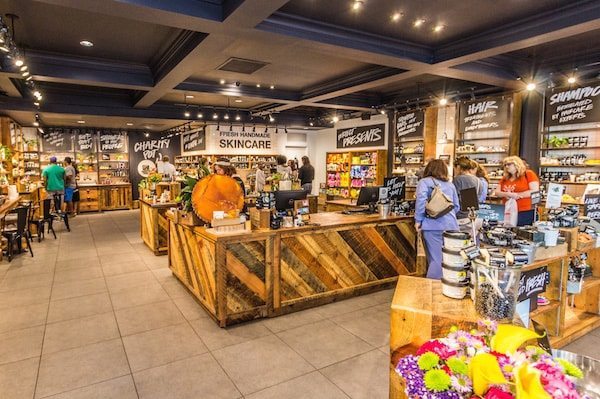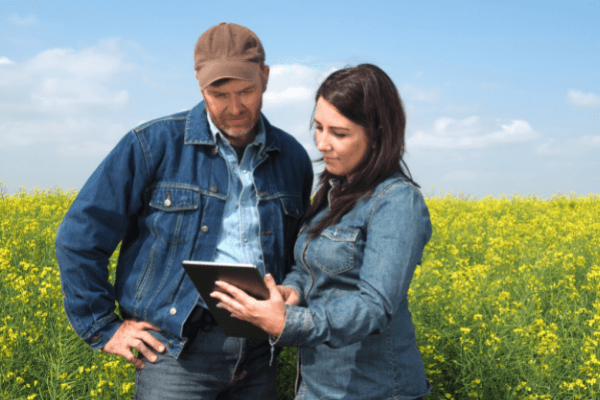What good is the latest, greatest product or service if the target customer thinks it’s too confusing, too cumbersome, too expensive, or just not beneficial enough to bother with? Easy answer, right? The company that developed that “solution” probably won’t stay afloat too long. This is why the discovery process is so important. To make sure there isn’t a major disconnect between customer needs and the product or service offered, entrepreneurs should get out there and talk with potential users or consumers. That way, they can learn their challenges, needs, and wants, as well as show them the product or idea, listen to their feedback, and incorporate it when applicable. Food and ag entrepreneurs can do a lot of discovery at farmers markets, festivals, food trucks, and other early-stage selling venues. By tracking who stops by and who buys, and by asking them about their family, hobbies, and what they like or don’t like about the product, they can get the persona of their target audience and what draws them in. For food and farm entrepreneurs looking to launch a service or technology, the discovery process is perhaps even more crucial. It certainly was for our latest Edible-Alpha® podcast guest, Matt McCoy, as he developed Field to Freezer, an app-based software solution to streamline wild game and domestic meat processing. Matt says spending sufficient time in discovery is critical to figuring out a minimum viable product, the cost to execute it, and the next steps. Here are some key benefits that come from a solid discovery process. Learn your customer base. Discovery allows entrepreneurs to really get to know the people or businesses that they hope will buy the product. This must go beyond friends, family, coworkers, and neighbors to include folks who will give honest feedback. For instance, Matt learned that while meat processors are down-to-earth and wear their heart on their sleeve, they are typically adversity to technology, “so we made sure we didn’t overbuild our product or add features before the market is ready for them.” Educate your target market. With tech solutions especially, it may not be outwardly clear to target consumers why the product is necessary or how it could help. But in discovery, food and farm entrepreneurs can sit down with people, meet them where they are, and walk through the benefits. Gather and implement feedback. During Field to Freezer’s discovery phase, Matt showed processors paper sketches of his idea before building the actual software. Along with making his solution more approachable to this group, it also made it easier—and cheaper—to tweak things based on their feedback. Through his past software experience, Matt knew that being flexible and unafraid to make changes would be key to success. Figure out pricing. Discovery is also the time to hammer out a good price point based on conversations with target users. If the product is priced too high for them, it won’t matter if it’s awesome—they won’t buy. Gain confidence in your idea. Hopefully, when doing discovery, entrepreneurs will get lots of positive feedback and see potential customers get excited about the product. This can reassure them that they’re on the right track and give them more confidence to move forward.

Software developer and avid deer hunter Matt McCoy saw inefficiencies in small-scale meat processing, so he created an app-based solution to benefit processors and their customers. In this podcast, he shares how he built Field to Freezer from the ground up, from doing robust discovery to launching the product to now seeking investment. Matt’s story will educate and inspire fellow entrepreneurs wanting to deliver a technology or service for the food or farm sector.
And now, our roundup of the best food and beverage finance news, events and resources from around the web…

Business Model Insights
- Diversifying leadership, consumer-base represents significant growth potential for natural, organic brands (FoodNavigator-USA)New data show that companies with diverse leadership that intentionally engage with a diverse consumer base are growing faster than brands that over-index among white shoppers.
- Building stronger links in your supply chain (New Hope Network)
- Don’t be a horrible boss; communicate instead (Natural Products Insider)

Raising Capital
- Are Regenerative Certifications Poised to Drive Market Growth? (Raising Regenerative News)What is the role of regenerative certifications in developing the overall regenerative market—including decisions to invest in it? Could there already be too many certifications?
- FarmlandFinder relaunches to exclusively offer sale-leaseback (Successful Farming)
- Food and agtech investments don’t stack up with climate needs (GreenBiz)

CPG/National Brands
- Marketing strategies to drive effective quality of voice (New Hope Network)Understanding how to use creative storytelling and target the right audiences is essential to a brand’s success.
- FDA will conduct research on front-of-pack ‘healthy’ symbol (Food Dive)
- CPG categories uphold pandemic sales gains (Supermarket News)

Market Trends
- Annual inflation for food at home surges 10%, calling into question future elasticities (FoodNavigator-USA)Thanks to persistent supply constraints and skyrocketing energy costs, inflation keeps rising, with the consumer price index for food at home hitting 10% in March compared to last year.
- Specific claims like ‘cruelty-free’ are more effective than USDA organic label: survey (Food Dive)
- 12 natural products branding trends to know now (New Hope Network)

Farming and AgTech
- Organic Valley’s new carbon neutrality program focuses on ‘insetting’ (New Hope Network)The organic farm cooperative aims to become the first major dairy brand to reach carbon neutral emissions without relying on carbon offsets.
- John Deere to Sell Diagnostic Software Directly to Farmers (Modern Farmer)
- Farm rescue helps farmers facing illness, injury, or natural disasters (Successful Farming)

Deals/M&A
- Indoor farming to reach an estimated $155.6B by 2026 (Food Dive)With controlled-environment agriculture raising $1.6 billion through 70 deals in 2021, the segment has tremendous potential—if it can get a handle on its sky-high startup costs.
- 6 Steps To Successfully Close Your Acquisition Deal (Forbes)
- Data Snapshot: Downstream investment grew 124% in 2021, but upstream saw more deals (AgFunder News)

Industry Events
Virtual events:
- Edible-Alpha® MVP Series Workshop: Packaging Systems Development & Optimization: 4/27
- Edible-Alpha® Immersion Training: Scenario Planning: 5/2–5/11
- Food Edge Summit: Sustainably Feeding Our Growing Population: 5/3–5/5 (hybrid event)
- Edible-Alpha® MVP Series Workshop: Optimizing Management, Operations, Quality & Food Safety Development: 5/11
- Edible-Alpha® MVP Series Workshop: Key Legal Considerations and Managing Your Business Risk: 5/25
- Edible-Alpha® MVP Series Workshop: Developing a High-Performance Organization: 6/8
- Edible-Alpha® MVP Series Workshop: Financial & Accounting Processes: 7/8
- Rooted in Health: Investing at the Intersection of Regenerative Agriculture & Nutrition: 6/22–6/23
- WSJ Global Food Forum: 6/27–6/28 (hybrid event)
- IFT First: Annual Event and Expo: 7/10–7/13 (hybrid event)
- Food Finance Institute July Quarterly Trends Talk: 7/11
In-person events:
- Midwest Food Products Association Sanitation Seminar: 4/28 in Wisconsin Dells, WI
- Petfood Forum: 5/2–5/4 in Kansas City, MO
- Craft Brewers Conference & BrewExpo America: 5/2–5/5 in Minneapolis, MN
- Food Edge Summit: Sustainably Feeding Our Growing Population: 5/3–5/5 in Boston, MA
- Food and Beverage Wisconsin Spring Business Mixer: 5/5 in Milwaukee, WI
- Northwest Wisconsin Women in Conservation Spring Conservation Gathering: 5/6 in Amery, WI
- Grow Your Farm Business: Accessing New Markets Through Distribution: 5/9 in Atlanta, IL
- Food Safety Summit: 5/9–5/12 in Rosemont, IL
- Soil Health Academy School: Adaptive Grazing with Multiple Species: 5/17–5/19 in Uniontown, AL
- National Restaurant Association Show: 5/21–5/24 in Chicago, IL
- Sweets & Snacks Expo: 5/23–5/26 in Chicago, IL
- Soil Health Academy School: Grazing for Profit & Regeneration: 5/31–6/2 in Cimarron, NM
- International Dairy Deli Bakery Association Show: 6/5–6/6 in Atlanta, GA
- Sosland Publishing Purchasing Seminar: 6/5–6/7 in Kansas City, MO
- Soil Health Academy School: Transitional Regenerative Dairying: 6/7 in Waterloo, NY
- Soil Health Academy School: Transitional Regenerative Dairying: 6/9 in Loganton, PA
- World Pork Expo: 6/8–6/10 in Des Moines, IA
- Vegandale Festival Chicago: 6/11 in Chicago, IL
- Summer Fancy Food Show: 6/12–6/14 in New York, NY
- WSJ Global Food Forum: 6/27–6/28 in Chicago, IL
- IFT First: Annual Event and Expo: 7/10–7/13 in Chicago, IL
- Organic Produce Summit: 7/13–7/14 in Monterey, CA
